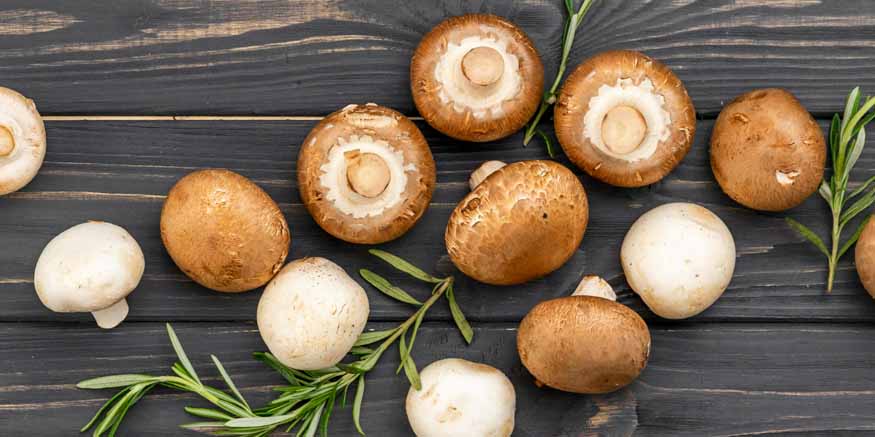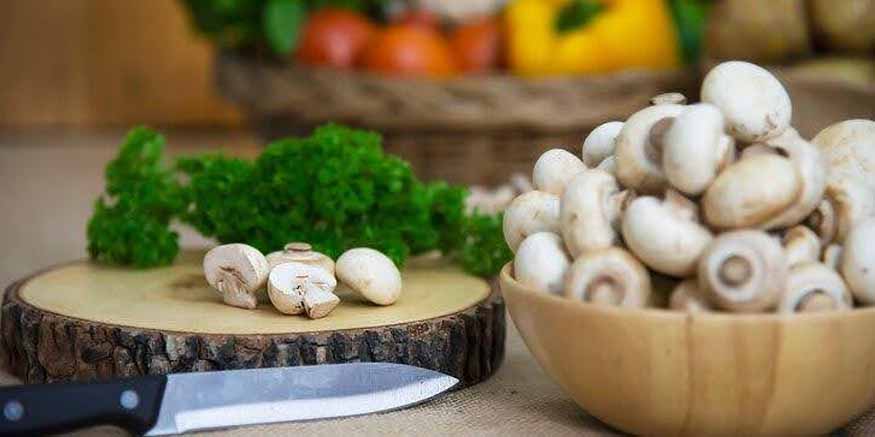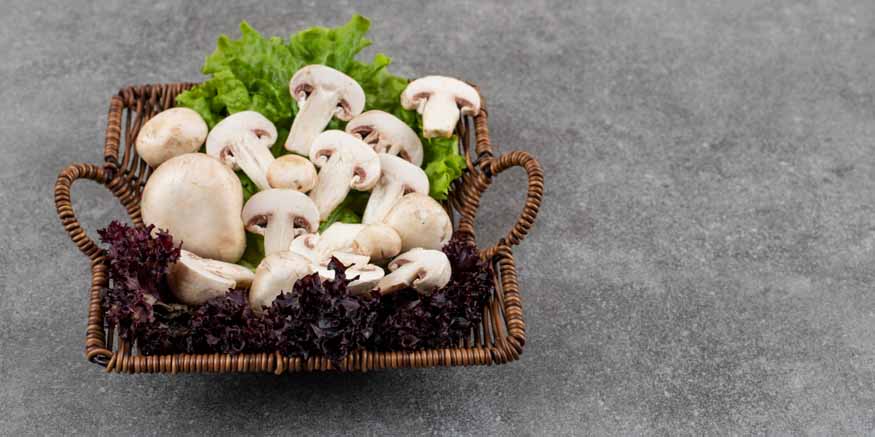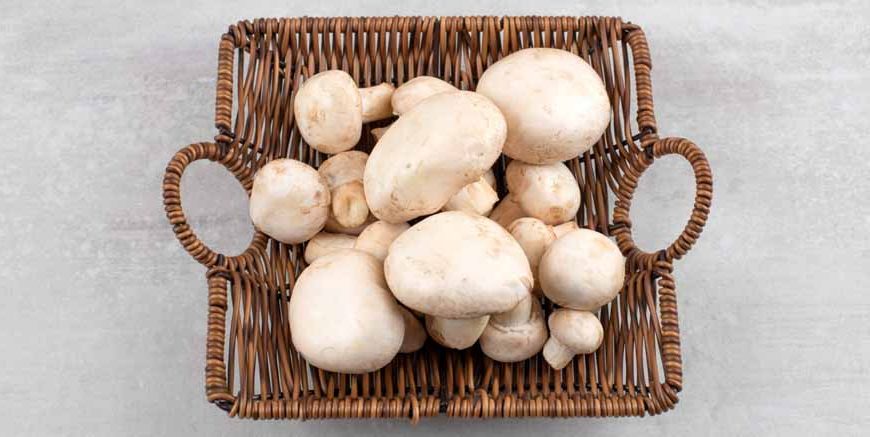Since anyone with a baby also wants to give the best for their child, feeding is always an exciting, yet a little challenging milestone, especially when you are trying out new foods. One of the minor yet commonly omitted items in the diet plan for babies is mushrooms. While considered as simple mushrooms, these are actually rich sources of essential nutrients and provide a rainbow of taste and feel to foods that can be enjoyable for your kid.
Table of Content:
- Mushroom Benefits for Babies
- Mushroom Recipe for Baby
- Nutritional Value of Mushrooms
- Mushroom Protein
- Additional Tips for Introducing Mushrooms to Babies
- References
Mushroom Benefits for Babies:

- Nutrient-dense:
- Antioxidant Powerhouse:
- Immune System Support:
- Digestive Health:
- Umami Flavor:
These are highly nutritious food products; they do not have many calories but many vitamins and minerals. It is also equally crucial in supplementing our daily dietary intake of vitamin D that is useful in the wellbeing of the bones and our immunity.
Mushrooms also contain the ingredients such as selenium and ergothioneine which possess antioxidant properties that guard cells against the creation of free radicals.
Some types of mushrooms like shiitake and reishi contain specific compounds which are effective for raising the immune response.
These are well known to be rich in fiber, and thus enable the babies to maintain good digestion and bowel movements. It is also necessary to note that the presence of fiber in mushrooms can act as a treatment for constipation which is a rampant problem among children.
Organic mushrooms provide a mouthwatering, umami flavor that is rather valuable for teaching your baby different tastes and what the muncher provides for a taste to evolve.
Mushroom Recipe for Baby:
Here’s a delicious and nutritious recipe that your baby is sure to love:
Creamy Mushroom and Potato Purée:
Ingredients:
- 1 cup sliced mushrooms (button, portobello, or a mix)
- 1 medium potato, peeled and diced
- 1 cup unsweetened almond milk or breast milk
- 1 tablespoon olive oil or butter
- Salt and pepper to taste (optional)
Instructions:
- To begin with, in a pot, heat water to boiling point and then add pieces of potato which need to be diced.
- This will be ready once the vegetables are soft and the meat tender for about 10-12 minutes.
- Get a separate pan ready and melt the olive oil or the butter on a low medium heat.
- Stir in the sliced mushrooms and continue to cook until flavorful and somewhat golden in color, for about 5-7 minutes more.
- After boiling the potatoes, put them aside to cool a bit before mashing them using a blender or food processor.
- Add the sautéed mushrooms and almond milk or breast milk to the blender.
- Blend or process until you achieve a smooth and creamy consistency.
- Season with a pinch of salt and pepper (if desired) and blend again briefly.
- Let the purée cool slightly before serving it to your
Nutritional Value of Mushrooms:

- Protein:
- Vitamin D:
- B Vitamins:
- Selenium:
- Copper:
- Potassium:
- Fiber:
This is one way by which plant protein is obtained and protein is rather indispensable in the diet of the growing baby even though depending on the mushrooms used the protein values may vary considerably.
They are a source of vitamins and minerals whereby it is rich in vitamins especially Vitamin D which are essential nutrients needed to build bone and tooth structures Other classes of meats.
It is also rich in ugly B vitamins like the riboflavin, niacin, and pantothenic that are involved in many aspects such as metabolism, blood formation, and brain function among others.
Of its roles, one is that it enhances antioxidant activity due to the role it plays in the thyroid gland as well as the immune response.
A raw estimation of the same assuming that 100 grams of mushrooms contain approximately 0.
This is a mineral that exists in the body in large quantities; it also helps in the regulation of fluids in the body and has an impact on muscular contractions.
It is of soluble and insoluble type so can aid in digestion and bowel movement for babies within the nursery.
Mushroom Protein:
Mushroom, unlike beans, is not a complete protein but does contain an adequate amount of quality protein as found in plant protein sources. However, mushrooms are one of the few vegetables that are a source of vitamin D and non-animal source at that; mushrooms contain antioxidants and assist in preventing damage to the baby’s cells. As to the quantity of protein, it is changed according to the type of mushrooms; however, approximately one cup of cooked mushrooms contains about 3 grams of protein. Despite this, the amount may not be considered large, but coupled with other protein foods in the diet of the baby such as grains, legumes and dairy products then it is adequate protein to the body of the baby.
To guarantee the baby gets enough protein from more than one food group, you will need to add mushrooms in the baby’s diets. It is possible to incorporate sautéed mushrooms as toppings to purées, soups, or rice dishes, among other methods, in a plate made of other protein rich foods. However, what most parents need to understand is that new foods, including mushrooms, should be introduced in a gradual manner and only after consulting with your pediatrician, if you have or are aware that your child has food allergies or sensitivities to certain foods.
Additional Tips for Introducing Mushrooms to Babies:

- Start Early:
- Introduce One Food At A Time:
- Choose Safe Varieties:
- Prepare Them Properly:
- Offer Small Portions:
- Watch For Reactions:
- Vary The Preparation:
- Combine With Other Foods:
is considered to start with solid foods at the age of 6 months, when for instance, mushrooms may be introduced to the child’s diet.
When introducing a new food such as mushrooms eat it for several days then take some time before eating the food again. At this stage it is recommended to feed the child with a new food for some days then wait for some days before feeding him with the same food again.
As far as mushrooms are concerned the general rule is that most types are fine for babies however it is advisable to begin with button, cremini or Products of portobello mushrooms.
It is best to clean and cook the mushrooms to minimum cooking because your baby is too young and vulnerable to some diseases that might be caused by contaminated foods.
Begin spoon feeding by giving small amounts of the mushrooms and gradually as the child gets used to the food increase the amount of food given to him or her.
Always observe any symptoms of affected skin reactions,face swelling,or breathing difficulties in your baby after taking mushrooms into their diet. In case you observe any signs that are not normal or you are uncomfortable with them, stop using the product and/or seek your pediatrician’s advice.
Introduce new combinations that would help in the development of his palate and try a different way of cooking like sauteed, roasted or made into a puree.
When it comes to coupling mushrooms, then it goes well with grains and vegetables and it can complement proteins also. Eat them with other foods your baby already likes as these are healthy homemade foods for your baby.
It’s worthwhile to note that mushrooms are very versatile and can be easily combined with grains, vegetables and proteins. Serve it alongside foods your baby has been accustomed to eating so as to create a finished product that is nutritional.
For more such interesting blogs, Visit EuroKids
References:
- https://www.webmd.com/diet/health-benefits-mushrooms
- https://www.cdc.gov/nutrition/infantandtoddlernutrition/foods-and-drinks/when-to-introduce-solid-foods.html
- https://www.ncbi.nlm.nih.gov/pmc/articles/PMC10088739/
- https://www.medicalnewstoday.com/articles/278858
- https://parenting.firstcry.com/articles/mushroom-for-babies-benefits-and-recipes/
- https://huckleberrycare.com/blog/mushrooms-for-babies
- https://rrcultivation.com/blogs/mn/4-tips-safely-introducing-mushrooms-babies-toddlers














